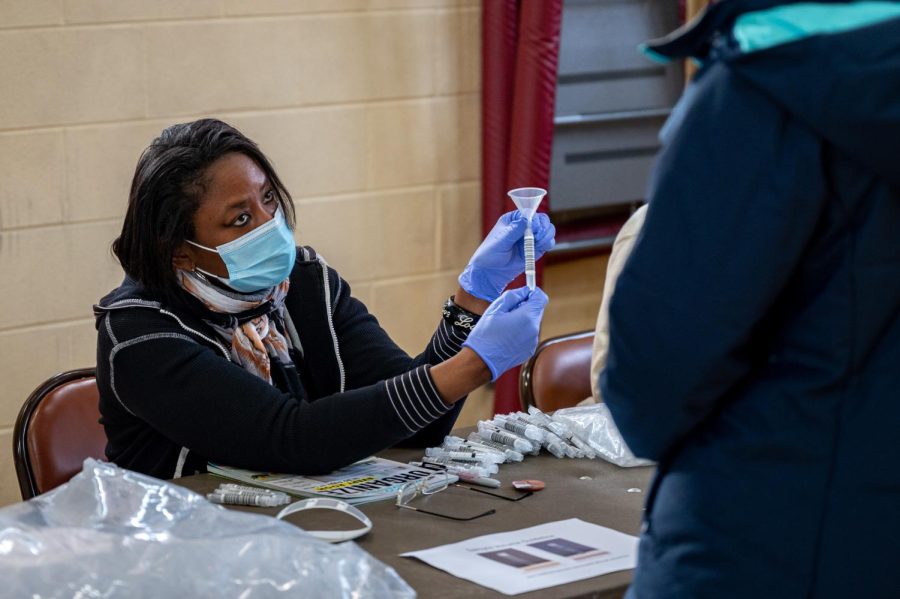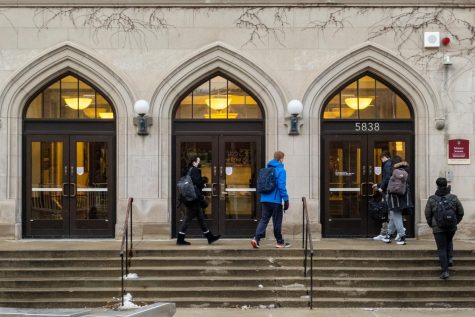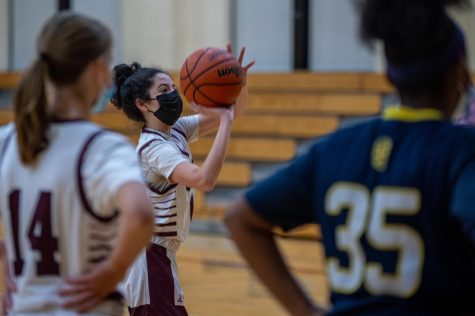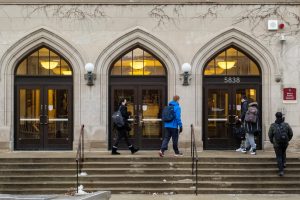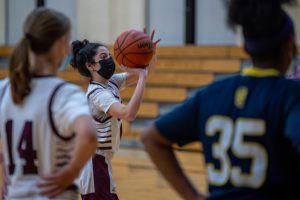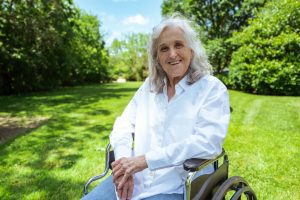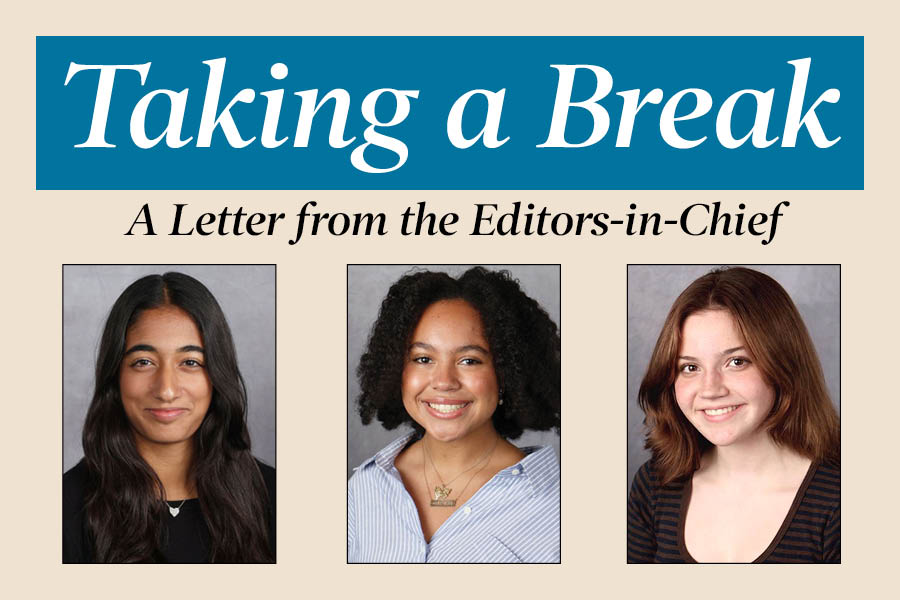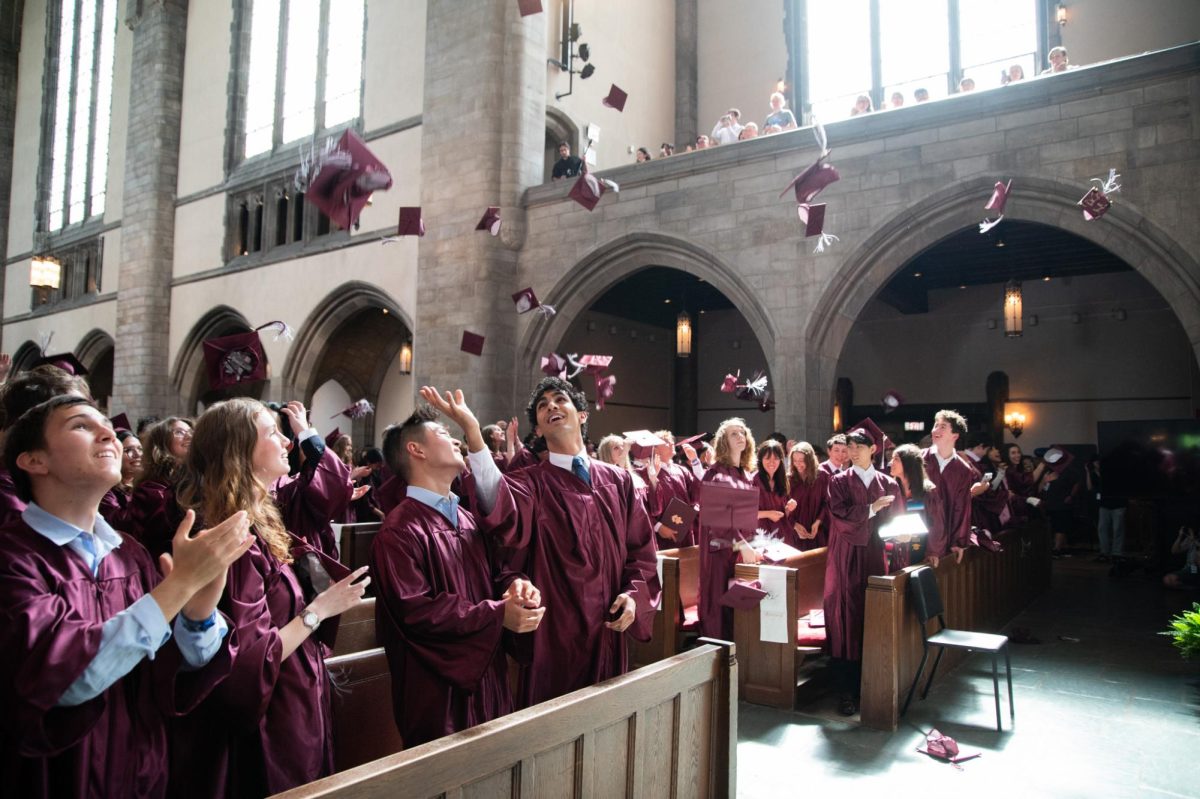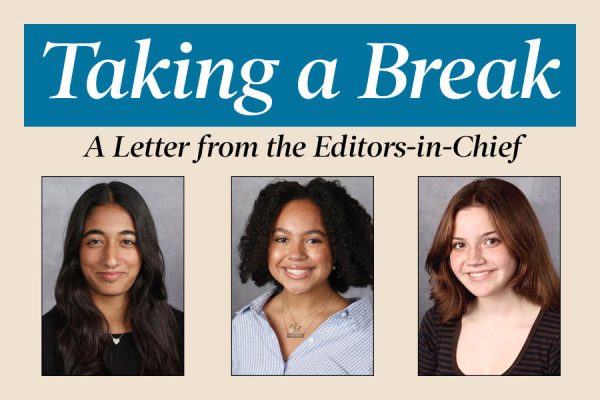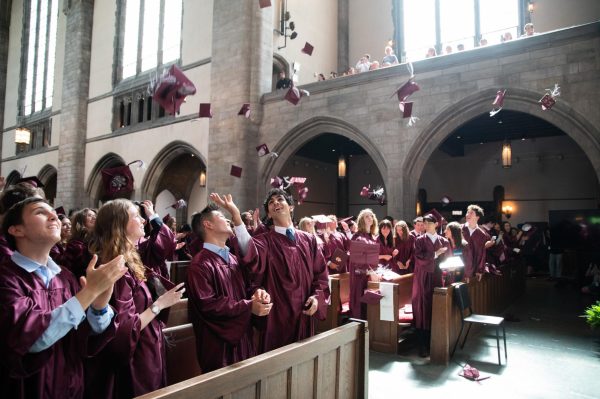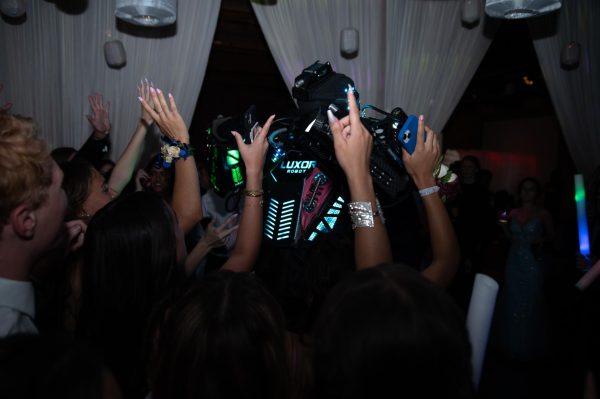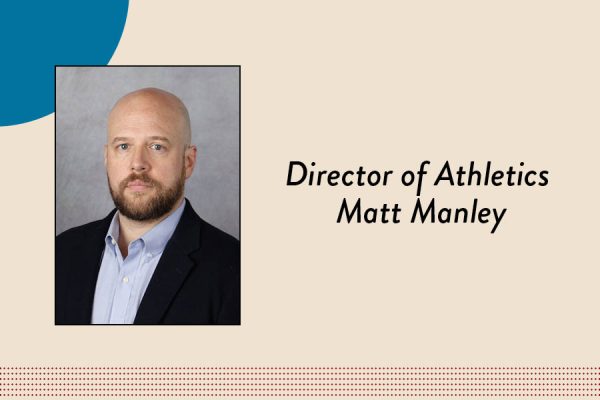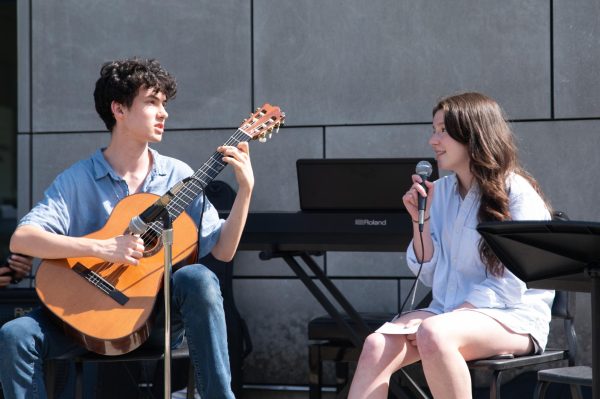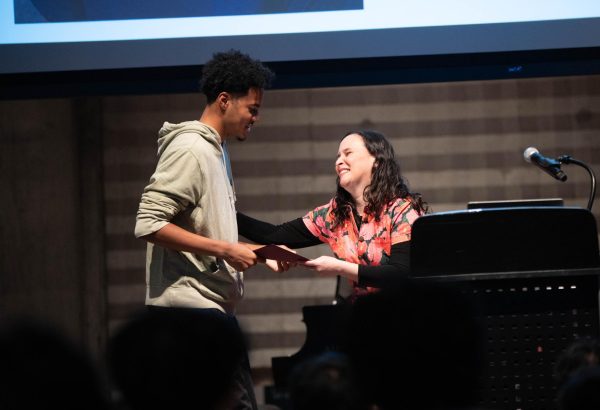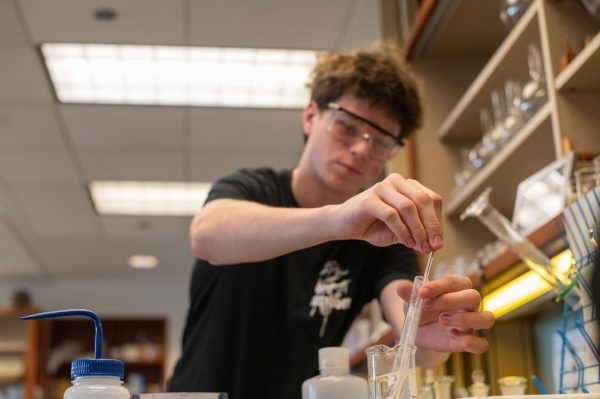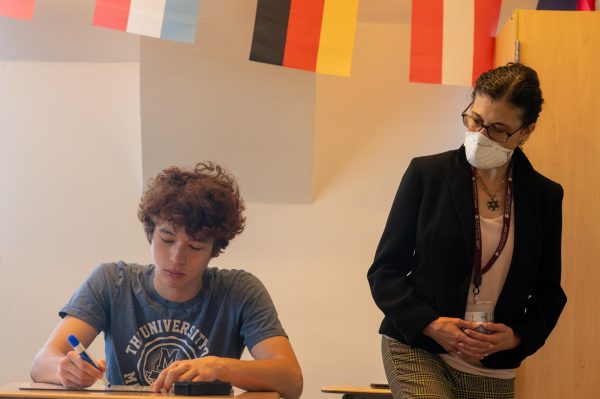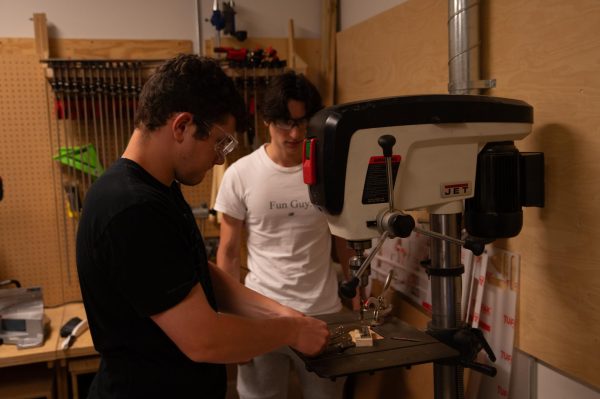Lab community adjusts to delay in classes, weekly testing
Extended Day teaching assistant Lionette Bursey instructs a student on how to use and fill a sample tube on Jan. 4, 2022, in Upper Kovler gymnasium during the first round of SHIELD testing.
January 6, 2022
With increasing spread of a new coronavirus variant, in-person classes recently delayed to Jan. 10 and new weekly COVID-19 testing protocol systems implemented, students and faculty have had to adjust and adapt to 2022’s first challenges.
The decisions to change the start of school and to implement testing were made by the administration with support from the Faculty Association. Due to the rise of the omicron variant and the ease of virus transmissibility, the administration thought it best to delay classes one week to accommodate the influx of COVID-19 cases from winter break.
Many teachers have reacted appreciatively regarding the new mitigation measures for their health benefits.
“I think the measures taken by the administration here will help with keeping students in school and help mitigate the spread [of COVID-19],” Faculty Association president Jim Catlett, a science teacher, said.
Math teacher Jane Canright echoed Mr. Catlett’s sentiment, as she had become anxious as COVID-19 infection rates began trending upward during the holidays.
“I was glad that the school had made a decision and was being proactive about the return to school after the holidays, because I had, in watching the news, become kind of anxious just because the return was so close to, you know, Jan. 3,” she said.
Ms. Canright was also impressed with the new testing process, as she had not expected the first test to go so smoothly.
“It was not chaotic at all, and I was very pleasantly surprised by that,” she said about her test on Jan. 3. “I didn’t have to wait, they knew exactly what to have me do. I was in and out really fast. I was pleased with all of that.”
I was glad that the school had made a decision and was being proactive about the return to school after the holidays, because I had, in watching the news, become kind of anxious just because the return was so close to, you know, Jan. 3.
— Jane Canright
Sophomore Yolo Martinez was relieved to receive the news, as it provided her time “to get [her] life a lot more together.”
However, one concern for Yolo was how the rest of the semester would play out academically and how teachers would plan their curriculum to fit the revised semester schedule, which will now end Feb. 4.
Many teachers have already met and decided plans for the next few weeks, with some teachers making small revisions in curriculum while others opted to not assign homework the week of Jan. 3.
After the P.E. Department met with the administration to discuss classes moving forward, they decided to rearrange some units to plan less strenuous exercises for the next few weeks. These included activities such as pilates, yoga, CPR, volleyball, and health and fitness units.
“The activities we have coming up we feel are what we have been asked to do: keep things a little less strenuous, a little less heavy breathing, a little less max-effort types of activities,” P.E. department chair Scott Budeselich said. “So that’s really what we’re going to do going forward,”
While not an official decision, most math teachers decided to hold off giving homework the week of Jan. 3.
Ms. Canright said, “For me, the reason was since the semester’s pushed back a week and I’ve already planned all my classes until the end of this semester, and I already have a schedule for what I’m trying to do, it doesn’t really help me to have kids do work this week.”
A similar decision process occurred for some science teachers. Mr. Catlett also chose not to assign work this week.
“I would prefer to be in person to explain the concept. And then also recognizing that students may be, you know, dealing with some of their own issues about COVID-19 or travel,” Mr. Catlett said. “So I made the decision. I thought it would be best to go and pause with instruction.”
Music classes will continue in the new year, with choral music classes now being held in the tent on Scammon Garden north of Gordon Parks Arts Hall. However, one major change is that all wind instrumentalists in band class will not be able to play for six weeks.
Ninth grader Jaya Alenghat, who plays clarinet, finds the restrictions unfortunate but needed.
“I think there would be no point if band continued the way it was since having that many people in the same room without their masks is a lot. It’s very risky. So it’s unfortunate,” she said.
Overall, the beginning of 2022 has warranted large changes in COVID-19 mitigation measures, but Ms. Canright is grateful for the new testing process and to University of Chicago resources.
“We’re very lucky, I will say, with our Faculty Association and with the university and the access to this testing,” she said, “because I’m sure there’s a lot of schools struggling to figure out how to do any[thing].”



